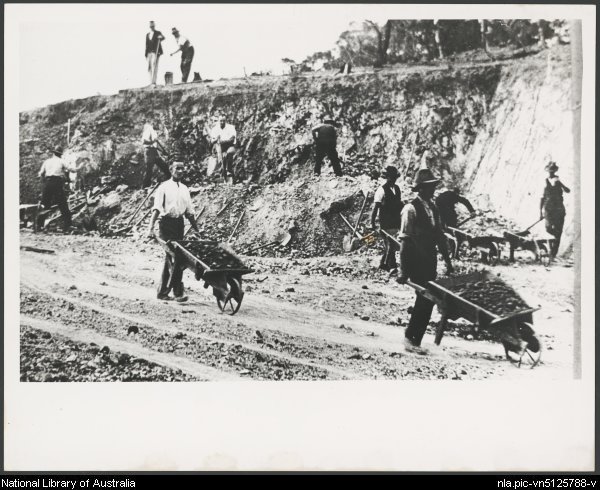My first job was as a dish-pig in the long since closed Yarra’s Restaurant in South Yarra. I got $10 cash per hour and a knock-off drink. The hours were long, the work dirty, and the chefs were either belligerent or incompetent. Sometimes both. I rolled up hungover one morning and was told, “don’t bother”. While it was a relief, the consequences weren’t great, with rent and bills due.
My next job was working for a direct mail business peeling price labels off Penthouse and Playboy magazines. The foreman was a complete bastard and after 4 hours, my co-worker (a lovely African chap who like me was a student at Monash Uni) and I were instantly dismissed for talking too much while we peeled price labels off boobs, hips, and bums. Our talking had not negatively impacted our productivity.
For the young, under-skilled, or economically vulnerable, negotiating the terrain of work can be a terrifying and confusing experience. Most potential employees have very little agency in how they negotiate the terms of their employment, except for that provided by legal protections like the Fair Work Act, and the demand the economy places on their skills.
Recently, the Abbott Government announced that the Productivity Commission will look into “possible improvements to Australia’s workplace relations system”, including “fair and equitable pay and conditions for employees, including the maintenance of a relevant safety net”.
Unsurprisingly the Institute of Public Affairs (IPA) have welcomed the Abbott Government’s announcement. In a Press Release, they said,”The economic evidence is clear – the minimum wage costs jobs, excludes vulnerable people from the workforce, and reduces living standards”. They also said
“In a free and prosperous country, the government should not be fixing any price in the economy – and that includes the price at which we choose to sell our labour”
“Minimum wages presume that workers are incapable of judging whether the compensation offered is sufficient for their work”
“Excluding low productivity workers from the employment market, minimum wages prevents those workers from getting the foothold necessary to gain experience and skills.”
It seems strange to focus on the minimum wage in a world where folks with skills compete on a global scale using sites like oDesk, Freelancer, Etsy and unskilled folks can offer their services via sites like Airtasker. After all, hasn’t the flattening of the global economy and boom in digital technologies meant that the minimum wage is obsolete?
Not really. The reason is that there is no equality in skills and access to the means to get the skills required to sell your labour in global markets. While digital transformation has a positive impact on the ability of skilled workers to choose how and when they work, for the unskilled and vulnerable a safety net is required.
The Australian Council of Social Service (ACOSS) believe that a minimum wage is an essential tool for poverty reduction and addressing social disadvantage. ACOSS also believes that a minimum wage can be used to address the relative inequality in women’s wages. According to ACOSS the minimum wage protects the almost 1 million Australians who live under the poverty line (when measured at 60% of the median wage).
ACOSS show that the minimum wage has dropped by 10 points as a percentage of full-time median earnings since 1996. They also show that the relation between increases in the minimum wage and reduction in employment growth is tenuous pointing to the experience of Britain where the minimum wage may have increased employment growth.
The IPA believe that the minimum wage has reduced labour demand and cost the equivalent of 87,000 full-time low-skilled jobs. They also believe that “[t]here is dignity in work, and the minimum wage is a threat to the dignity of the unemployed.”
What bullshit!
At a glance it looks like the IPA want an Australia where in the words of George Orwell:
“[H]e is no freer than if he were bought and sold. His work is servile and without art; he is paid just enough to keep him alive; his only holiday is the sack. He is cut off from marriage, or if he marries, his wife must work too. Except by a lucky chance, he has no escape from this life, save prison.”
At a time when the world is turning to the minimum wage as a tool for eradicating poverty, encouraging workforce participation, and addressing gender wage inequality the Abbott government seem intent on removing any wage protections for the poor, unskilled, young, or disabled. The minimum wage has been a central part of the Australian economy for over 100 years. It was one of the core themes that underpinned Australia’s reputation as a fair place where a hard worker could flourish.
The key problem with the IPA view is that it assumes that every individual shares the same capacity to negotiates the price which they sell their own labour and judge whether it is fair. Not all do. There is a valid role for Government to regulate to protect the more vulnerable members of society.
I’ve been relatively lucky in my working life and am sure I will continue to be so. The minimum wage helps others also enjoy good fortune and that is a very worthy cause.
The picture is of a group of men working on a road during the Great Depression (ref).

